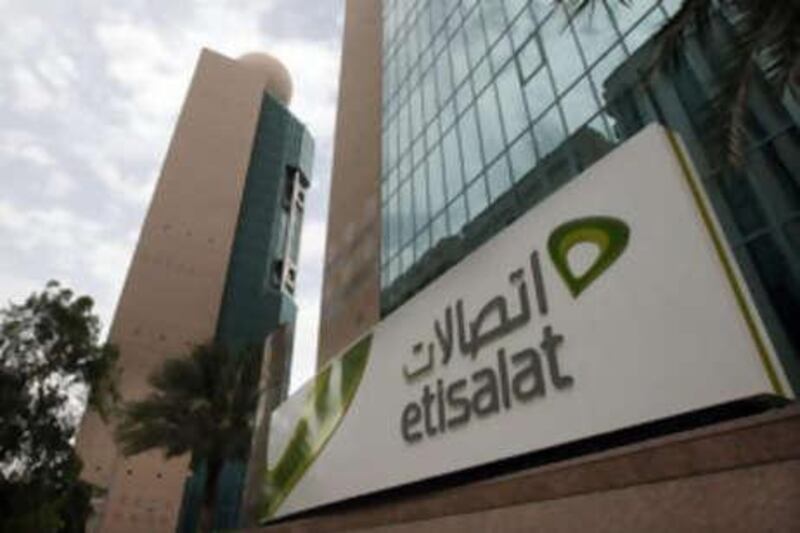It will be another four years at least before the country gets another mobile operator, in spite of calls for the market to be further liberalised and more competition allowed in. In a report last week, the management consultancy, Booz & Company, said liberalisation of Arab telecommunications markets would remain largely incomplete until new competitors were introduced. "It is very important that regulators evolve their markets in a managed way," said Bahjat el Darwiche, a principal at Booz & Company. "On one side, don't rush any decisions and effect market development. But on the other side, don't delay decisions and slow the market."
Mr Darwiche, a technology and communications specialist, said the Telecommunications Regulatory Authority (TRA) had managed to achieve high levels of market penetration despite little competitive pressure. "It was the managed approach to sector development, and it succeeded," he said. "Going forward, competition will do well for the market." Mr Darwiche believes new competitors are "definitely on the road map" as part of the TRA plan for the sector.
But the likelihood of new competitors in the coming years has been largely discounted by the credit ratings agencies that recently began covering Etisalat, the UAE's national telecommunications company. In analysing the firm, each company assessed the possibility of competition; none felt it was close to materialising. "When we assign ratings we talk to the regulator to get their view," said Martin Kohlhase, the lead analyst for Etisalat at Moody's, a ratings agency. "Our takeaway was that the way the market has been regulated as of today does not put either the incumbent or the new entrant in a position of competitive threat.
"We would not expect the allocation of a third licence in the coming years. We think the likelihood is limited until 2011-2012." "Each market has its own specifics," said Mr Darwiche. "The UAE is leading the region in penetration of fixed-line and mobile, so the drivers and incentives for opening the market to new competition are pretty different." Although the TRA declined to comment yesterday, Mohammed al Ghanim, the director general of the TRA, has previously said it was standard procedure to give a new entrant, such as du, a two- to three- year grace period to gain market share and become sustainable before adding a third competitor.
"Regulation is relatively benign compared to other regimes that we look at," said Michael Dunning, the managing director of the telecom and media ratings team at Fitch Ratings. "We don't see a high likelihood of significant new competitors in the next five years." The Booz & Company study called for new service-based competition to be rolled out across markets in the Middle East and North Africa. A service-based operator leases wholesale space on an existing network and resells it under its own name.
Such companies typically compete by offering lower prices through increased operating efficiency, or by targeting lucrative niche markets like young people, travelling businessmen or tourists. Etisalat and du have invested billions of dollars building nationwide fixed-line and mobile networks. Although both companies would gain a new revenue stream by selling wholesale network access to service-based operators - 10 to 20 per cent of total revenues in some cases, according to Mr Darwiche - they would also face tougher competition for new and existing customers.
"Regulators play a balancing role between different stakeholders," said Mr Darwiche. "The government is trying to maximise economic and social development, as well as the size of the telecom sector and government returns. Existing operators have invested in infrastructure and operations, and want to see a return. New investors and entrants want to bring their services to the country. And consumers want to see the optimal level of innovation, lower prices and choice. The regulator is trying to balance interests."
@Email:tgara@thenational.ae





